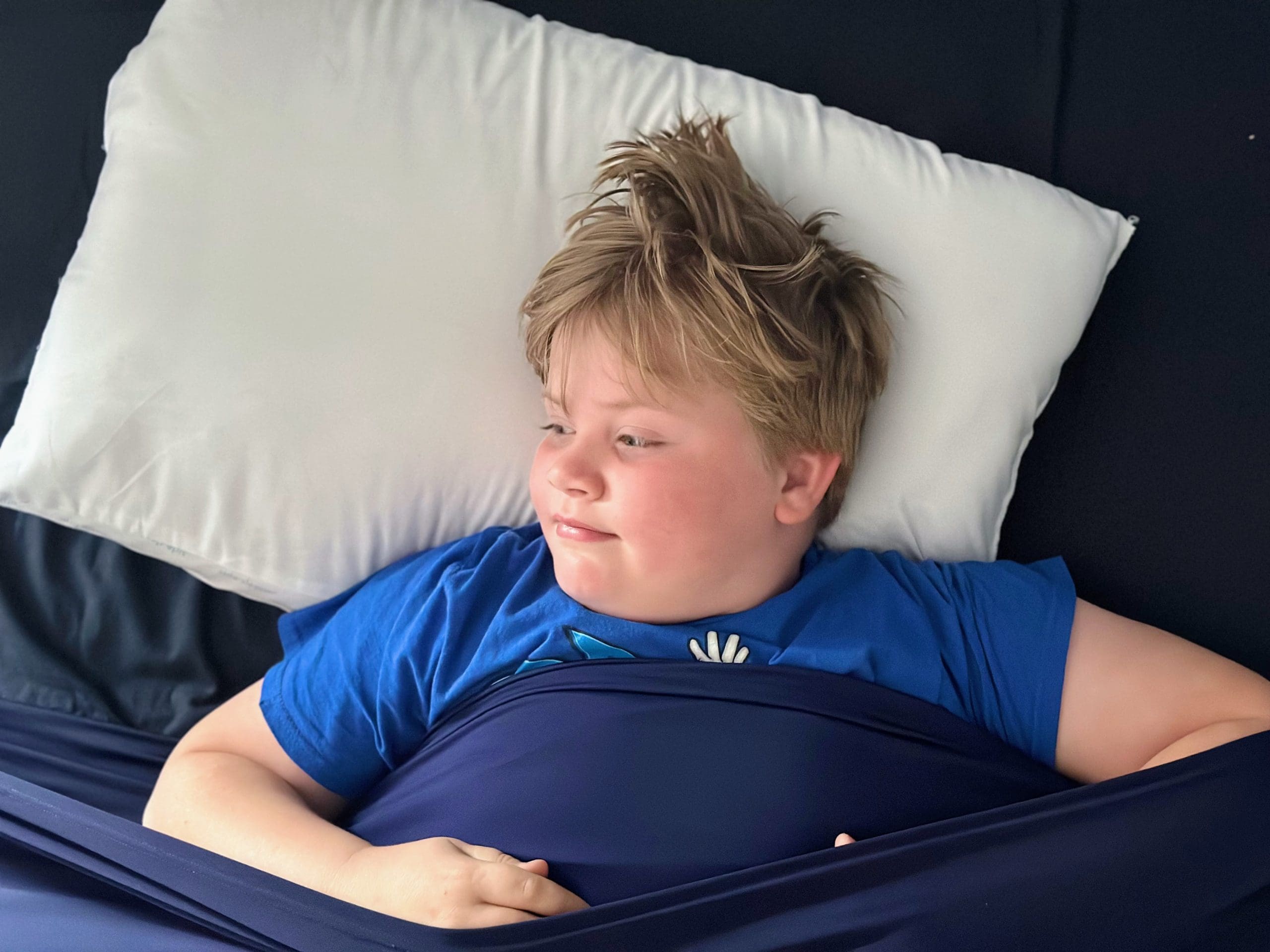How to Get an Autistic Child to Sleep

Sleep problems are common amongst autistic children with an estimated 50 to 80 percent experiencing trouble falling and staying asleep. Autistic children are more likely to have secondary diagnoses that directly and indirectly affect their sleep cycle. Consequently, medications may get in the way too. This leaves many parents and caregivers asking the question: How to Get an Autistic Child to Sleep.
Autism and Sleep
Autism can influence the sleep cycle in any number of ways. For example, the differences in the autistic brain may contribute to irregular circadian rhythms.
Circadian rhythms control all the habits and behaviors the body must perform at regular intervals in a 24-hour period. Amongst the many functions, they control are the timing of sleep hormones like melatonin. Some autistic children experience a reversal in melatonin release wherein they have high melatonin levels during the day and low levels at night.
Related Posts
- Autism and Transition: Why is transitioning so hard?
- 8 Common Autism Myths
- Explaining Autism to an Autistic Child – Resource Guide
- The Play Project Autism – A New Approach to Early Intervention

Autistic Child to Sleep: Comorbid Conditions Interfering
Mental health disorders like anxiety, depression, and attention deficit hyperactive disorder are also common amongst autistic children. These conditions can cause mood fluctuations and changes around bedtime that interfere with the sleep cycle. Additional medical conditions such as epilepsy, constipation, or acid reflux are also common and can disrupt sleep.
To treat these conditions, autistic children may be prescribed medications that interfere with sleep. For example, selective serotonin reuptake inhibitors (SSRIs) can cause hyperactivity and/or agitation in the evening. Additionally, autistic children often experience sensory issues and may be overstimulated by bedtime.
Any combination of these issues can lead to sleeplessness that affects both your child and, therefore, you. However, there are ways to promote better sleep. Let’s dive into How to Get an Autistic Child to Sleep.
How to Get an Autistic Child to Sleep

Autistic Child to Sleep: Create Supportive Sleep Conditions
The bedroom temperature should range somewhere between 60 to 68. It should also be quiet to reduce distractions. However, you might need to take the time to find the conditions that are the most supportive of your child’s sleep. For example, a white noise machine or a spaceheater may help some children sleep better while a ceiling fan and nightlight may be needed for other children.
Autistic Child to Sleep: A Consistent Bedtime Routine
Autistic children rely and thrive on routines. The activities in the routine can be simple; like putting on pajamas, brushing teeth, washing the face or hands, and reading a book. However, they should be performed in the same order and at the same time each day.
To help your child successfully move through the routine, try using a visual checklist that shows each step. You might need to provide extra guidance at first but soon your child will soon be able to check off activities as they’re completed while visually (and physically) moving towards the bed.

Autistic Child to Sleep: A Consistent Bedtime Routine
The bedtime routine is leading up to bedtime and, like the routine, the time at which your child goes to be should be as consistent as possible. Consistency allows the circadian rhythms to adjust, which can strengthen your child’s response to them.
If consistency in routine doesn’t help, talk to your child’s physician about dietary supplements, multivitamins, or over-the-counter and prescription medications that may help.
How to Get an Autistic Child to Sleep
Sleep is vital to physical, mental, and emotional health. Though autistic children face challenges, they too can get the rest they need. The good news is once your child is sleeping better, you’ll be able to get a full night’s rest too.


